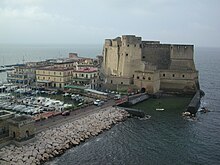476
Appearance
| Millennium: | 1st millennium |
|---|---|
| Centuries: | |
| Decades: | |
| Years: |
| 476 by topic |
|---|
| Leaders |
| Categories |
| Gregorian calendar | 476 CDLXXVI |
| Ab urbe condita | 1229 |
| Assyrian calendar | 5226 |
| Balinese saka calendar | 397–398 |
| Bengali calendar | −117 |
| Berber calendar | 1426 |
| Buddhist calendar | 1020 |
| Burmese calendar | −162 |
| Byzantine calendar | 5984–5985 |
| Chinese calendar | Ất mãoNiên (WoodRabbit) 3173 or 2966 — to — Bính thần niên (FireDragon) 3174 or 2967 |
| Coptic calendar | 192–193 |
| Discordian calendar | 1642 |
| Ethiopian calendar | 468–469 |
| Hebrew calendar | 4236–4237 |
| Hindu calendars | |
| -Vikram Samvat | 532–533 |
| -Shaka Samvat | 397–398 |
| -Kali Yuga | 3576–3577 |
| Holocene calendar | 10476 |
| Iranian calendar | 146 BP – 145 BP |
| Islamic calendar | 151 BH – 150 BH |
| Javanese calendar | 361–362 |
| Julian calendar | 476 CDLXXVI |
| Korean calendar | 2809 |
| Minguo calendar | 1436 beforeROC Dân tiền 1436 niên |
| Nanakshahi calendar | −992 |
| Seleucid era | 787/788AG |
| Thai solar calendar | 1018–1019 |
| Tibetan calendar | Âm mộc thỏ niên (female Wood-Rabbit) 602 or 221 or −551 — to — Dương hỏa long niên (male Fire-Dragon) 603 or 222 or −550 |


Year476(CDLXXVI) was aleap year starting on Thursday(link will display the full calendar) of theJulian calendar.At the time, it was known as theYear of the Consulship ofBasiliscusandArmatus(or, less frequently,year 1229Ab urbe condita). The denomination 476 for this year has been used since the early medieval period, when theAnno Dominicalendar erabecame the prevalent method in Europe for naming years.
Because the fall of theWestern Roman Empireoccurred in 476, many historians consider it the last year ofancient historyand the first year of theMiddle Agesin Europe.[1][2]
Events
[edit]By place
[edit]Roman Empire
[edit]- Summer –Odoacer,chieftain of the Germanic tribes (Herulic/Scirianfoederati), visits the imperial palace atRavenna.He petitionsOrestes(magister militum) to reward hismercenariesfor their services and their support of his rebellion a year earlier, by making good on his promise to grant them lands to settle permanently inItaly.Orestes refuses this proposal and Odoacer leads his tribesmen in a revolt.
- August–Basiliscus,Romanusurper,is deposed andZenois restored as emperor of theEastern Roman Empire.With the support of his adviserIllus,he besiegesConstantinople,but the Senate opens the gates, allowing him to resume thethrone.Basiliscus flees tosanctuaryin a church, but surrenders himself and his family after extracting a solemn promise from Zeno not to shed their blood. Basiliscus is sent to a fortress inCappadocia,where he later dies fromstarvation.
- August 23– Odoacer, age 43, is proclaimedrex Italiae( "king of Italy" ) by his troops. He leads hisOstrogotharmy into thePo Valley,and advances to Ravenna while plundering the countryside.
- August 28–Orestesis arrested by Odoacer nearPiacenza,and swiftlyexecuted.
- September 4–Romulus Augustulus,Roman usurper of theWestern Roman Empire,is deposed by Odoacer at Ravenna.Odoacer spares the boy's life and gives him a pension of 6,000solidi,but exiles him to the"Castellum Lucullanum"(Castel dell'Ovo), on the island ofMegaridein theGulf of Naples.This event will later be romanticized in Western literature and history as theFall of Western Rome,and is traditionally used by historians to mark the beginning of theEuropeanMiddle Ages.[3][4]
- Julius Nepos,de jureruler, becomes legally the last "Western Roman Emperor". He governsDalmatia(Balkans), Morocco, and Northwest Gaul until his death in480,but has no effective power on theItalian Peninsula.
- Odoacer crosses theMaritime Alpswith aGothicarmy and invadesProvence(SouthernGaul). He conquers the cities ofArlesandMarseilles,after a victorious battle against theBurgundians.
- TheVisigothsunder KingEuricmarch into Italy, and suffer defeat against the forces of Odoacer. Emperor Zeno concludes apeace treatybetween the Goths and Odoacer surrenders the newly conquered territory in Gaul. Euric pledges himself to undertake no further hostilities.
- TheRoman SenatepetitionsZenoto recognize Nepos as deposed and take the sole emperorship himself, abolishing the 81 year-long east/west division of the empire and recognizing Odoacer's authority in Italy. Zeno declines the first request, but names OdoacerPatricius,investing his rule with Imperial legitimacy.
- Winter – Zeno recognizes the full extent of theVandal Kingdom,including all of westernAfrica,theBalearic Islands,Corsica,SardiniaandSicily.KingGaisericgives Sicily, with the exception of the city ofLilybaeum,to Odoacer in return fortribute.
India
[edit]- The birth ofAryabhatais traditionally regarded as the beginning of the classical period ofIndian mathematicsandastronomy.
China
[edit]- Xian Wen Di,Retired EmperorofNorthern Wei,is murdered by EmpressFeng.She assumesregencyover the youngXiao Wen Di.
By topic
[edit]Religion
[edit]- Peter the Fulleris restored aspatriarch of Antioch.
Births
[edit]- December–Aryabhata,Indianmathematicianandastronomer(d.550)
- Hilary of Galeata,Christianmonkandsaint(d.558)
Deaths
[edit]- August
- Basiliscus,Emperor of theEastern Roman Empire
- Marcus,co-Emperor of the Eastern Roman Empire
- August 28–Orestes,Roman politician andregent
- Xian Wen Di,Chinese Emperor ofNorthern Wei(b.454)
References
[edit]- ^Clare, I. S. (1906). Library of universal history: containing a record of the human race from the earliest historical period to the present time; embracing a general survey of the progress of mankind in national and social life, civil government, religion, literature, science and art. New York: Union Book. Page 1519 (cf., Ancient history, as we have already seen, ended with the fall of the Western Roman Empire; [...])
- ^United Center for Research and Training in History. (1973). Bulgarian historical review. Sofia: Pub. House of the Bulgarian Academy of Sciences]. Page 43. (cf.... in the history of Europe, which marks both the end of ancient history and the beginning of the Middle Ages, is the fall of the Western Roman Empire.)
- ^"Middle Ages".Dictionary.com.
- ^Bruni, Leonardo(2001) [1442]. Hankins, James (ed.).History of the Florentine People.Vol. 1. Cambridge, MA: Harvard University Press. p. xvii.ISBN978-0-674-00506-8.
